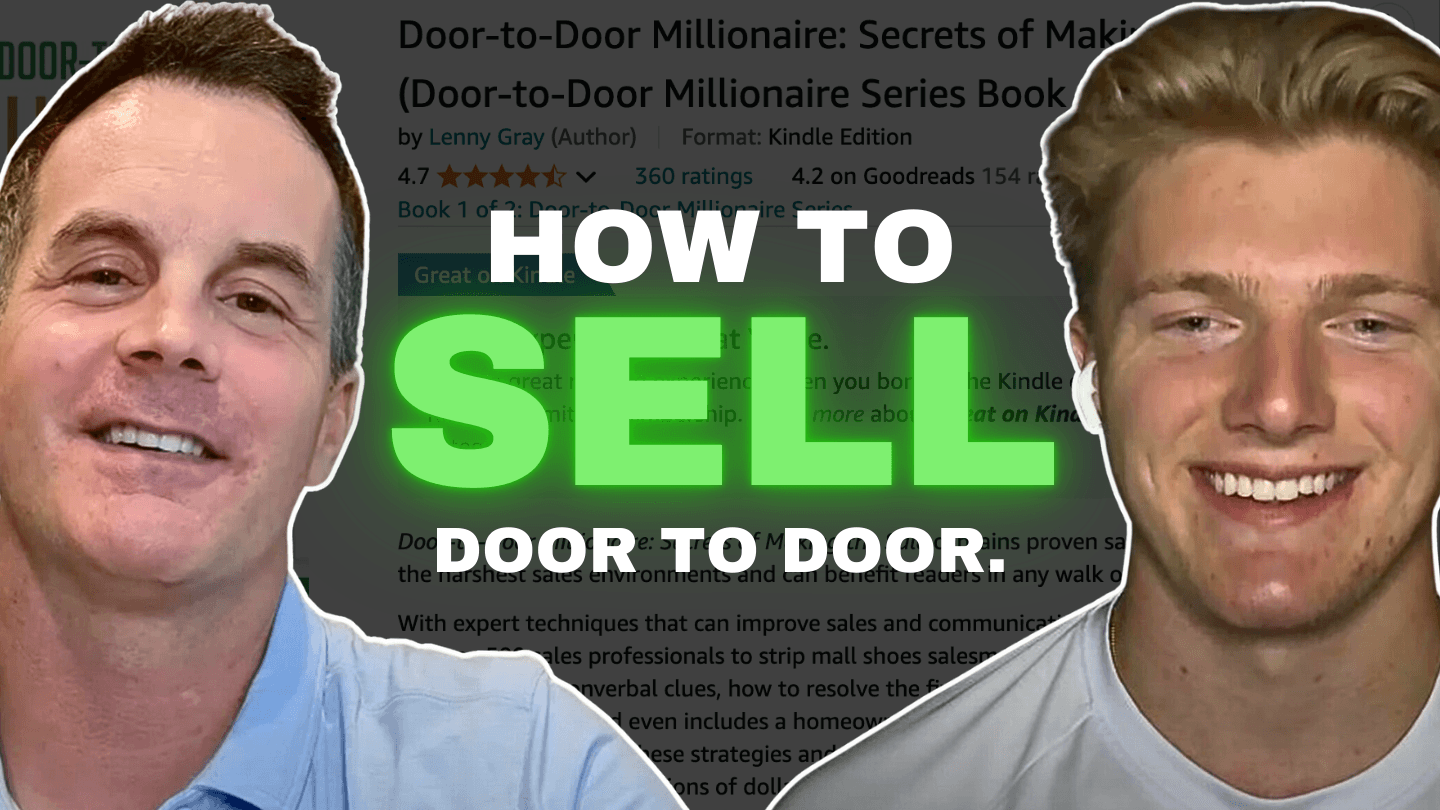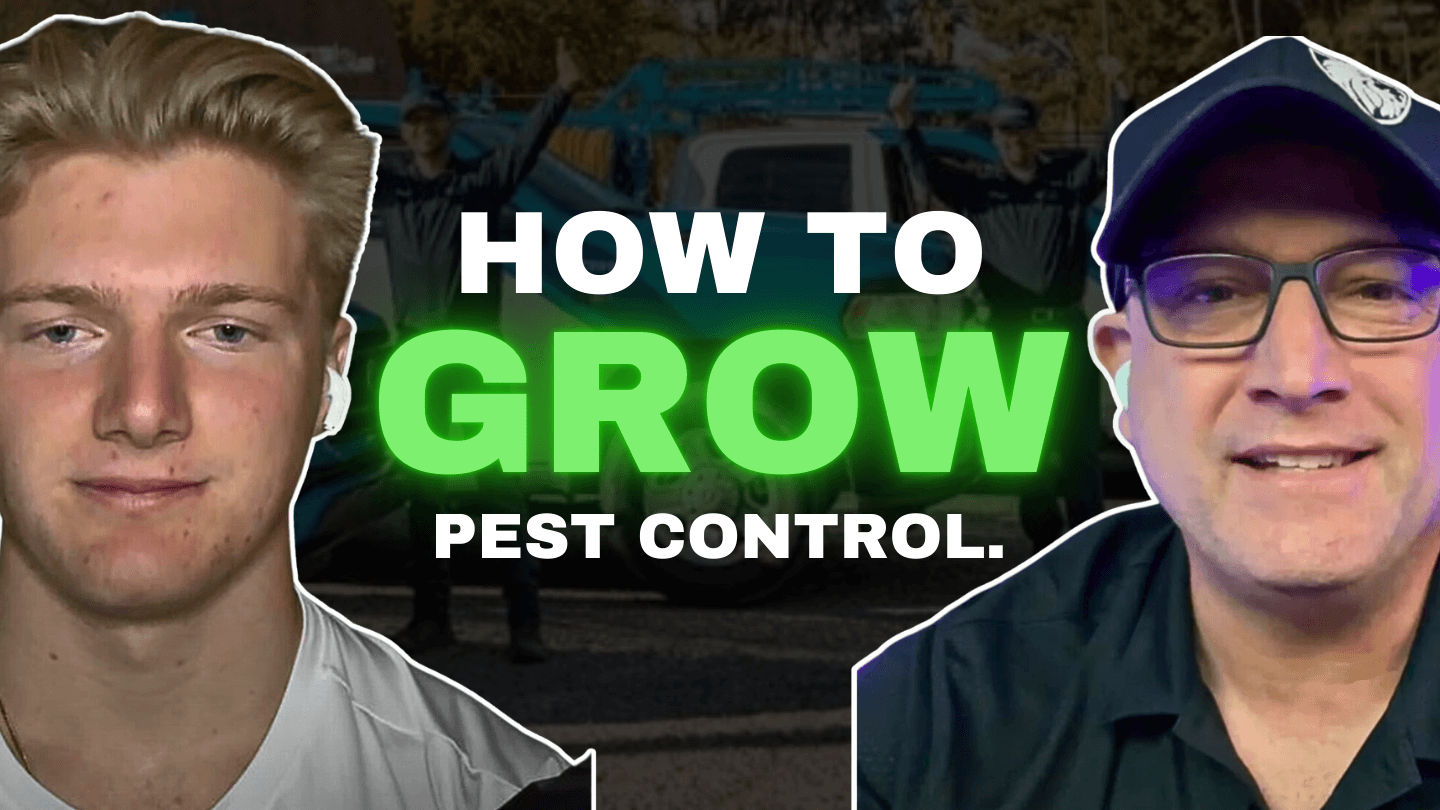Podcast
Bradley Benner on How To Win Local SEO, Google's New Algorithm, and Building Backlinks.
Danny Leibrandt
Jul 8, 2024
Welcome to another episode of the Pest Control SEO Podcast, where we discuss strategies and insights to help pest control companies grow through effective SEO practices. Today, we have a special guest, Bradley Benner, a seasoned local SEO specialist with over 15 years of experience. Bradley is the founder of Treecare HQ, a digital marketing agency focused on local SEO for tree care companies. He's also the mastermind behind Semantic Mastery, Semantic Links, and Local Fury. Bradley's journey from being an electrical contractor to a leading figure in local SEO is inspiring and filled with valuable lessons.
Bradley Benner’s Journey into Local SEO
Bradley Benner’s foray into local SEO began out of necessity. As a former electrical contractor, he struggled to generate leads for his business. This challenge led him to explore digital marketing, despite having little proficiency with computers at the time. He recounts, “I could barely turn on a damn computer when I was doing electrical work.” His initial attempts at marketing were traditional, involving print advertising and direct mail. However, he soon realized the potential of generating leads from Google.
Bradley started by building test sites for his own business and other industries, such as carpet cleaning and locksmith services. Within six months, he had all three test sites ranking at the top of Google. This success spurred him to adopt the rank-and-rent model, where he built websites and leased them to contractors. By 2012, Bradley had accumulated enough side income from SEO to establish his own agency, Big Bamboo Marketing LLC, which he later rebranded to Treecare HQ.
The Evolution of Local SEO
In the early days of SEO, Bradley explains, “It was a hell of a lot easier than it is now.” Back then, SEO was largely about on-page optimization and keyword stuffing. However, the landscape has significantly changed. Google’s algorithm has evolved from a keyword-based system to an entity-based algorithm, which focuses on topics and categories rather than individual keywords.
Bradley emphasizes the importance of adapting to these changes. “If you don’t change your ways, I keep doing what I’ve always done and my results aren’t getting any better. Okay. Isn’t that the definition of insanity?” He highlights the necessity of understanding the current SEO environment, where optimizing for topics and categories is crucial. This shift requires a different approach to content creation and site structure.
Building the Perfect Site Structure
Bradley’s extensive experience has led him to develop an optimized site structure that simplifies SEO efforts while maximizing results. He breaks down the key elements of on-page optimization into three primary components: page structure, site structure, and internal linking.
Page Structure
The first element is page structure, which includes the URL, SEO title, H1 (page title), headings (H2s), and subheadings (H3s, H4s, etc.). Bradley stresses the importance of proper HTML markup and warns against using HTML elements for styling content. Instead, these elements should be used to clearly convey the topic and structure of the page to Google.
Site Structure and Internal Linking
The second and third elements, site structure and internal linking, involve organizing content logically and ensuring efficient navigation. Bradley advises against creating redundant pages with similar content for different locations or services. Instead, he recommends a streamlined approach where each service has its own page, and location pages link to these service pages.
For example, a pest control company offering termite control, ant control, roach control, and spider control in multiple locations should avoid creating separate pages for each service-location combination. Instead, they should have a single location page that links to the main service pages.
The Importance of Entity-Based SEO
One of the significant shifts in SEO is the move towards entity-based optimization. Bradley explains that Google’s algorithm now understands topics and categories more deeply, thanks to advancements in artificial intelligence and machine learning. This shift means that optimizing for a broad topic or category can help a page rank for numerous related search queries, even if those specific keywords aren’t present on the page.
Bradley provides an example from his industry: “In my industry, the top level category is tree service, but then the top level topic term is tree maintenance...I can rank one page for every single search query associated with the tree service business industry if I optimize for tree service and tree maintenance, those two top level terms, category and topic.”
Simplifying SEO Efforts
Bradley’s approach to SEO emphasizes efficiency and clarity. By simplifying site structures and focusing on key optimization points, SEO efforts can be more effective and less labor-intensive. He notes, “Content for local SEO is one of the least important things. And that is not a joke. If you learn how to optimize for topics and categories the way that I’m describing, page structure and the big elements of the page, not content. Content is like the least important thing of the page.”
This perspective is a departure from traditional SEO practices, which often involved creating extensive content for each page. Instead, Bradley advocates for focusing on critical elements like URLs, SEO titles, H1s, and proper use of headings and subheadings. This approach not only simplifies the SEO process but also aligns with Google’s current algorithm, which prioritizes clear and structured information.
Conclusion
Bradley Benner’s insights into local SEO highlight the importance of adapting to changes in Google’s algorithm and focusing on efficient optimization strategies. His journey from an electrical contractor to a local SEO expert underscores the value of persistence and continuous learning. By adopting entity-based SEO practices and simplifying site structures, businesses can achieve better results with less effort.
For those looking to delve deeper into local SEO, Bradley offers valuable resources through his weekly webinar, Hump Day Hangouts. This platform provides a wealth of information and answers to specific SEO questions. As Bradley aptly puts it, “We as SEOs are puzzle builders...We should be putting the puzzle pieces together to help Google have that understanding in a much quicker way so that our clients will benefit from that.”
Join Bradley and other SEO enthusiasts in exploring the ever-evolving world of local SEO, and start building a stronger online presence for your business today.
Full podcast episode here:


